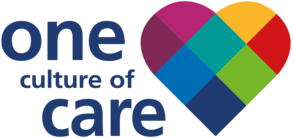Lizzie Orr is currently in Nepal where healthcare has to be paid for - so sometimes the whole family moves into hospitals to share the caring to keep costs down. It's very different and she's loving her secondment and the awsome mountain view from the roof of her home. (see attached and, no it's not Everest!)
Lizzie's a third-year trainee on the Scientist Training Programme (STP), a national scheme developed to train the clinical scientists of the future. Before deciding to apply to the Clinical Pharmaceutical Sciences specialism she completed a Masters degree in Chemistry and started working for a scientific charity which creates drug metabolism prediction software. She says: " The STP scheme seemed like a great way to combine my scientific skills with helping people." In Clinical Pharmaceutical Sciences we complete rotations in; Aseptics, Radiopharmacy, Quality Assurance/Quality Control and Production.
What made you apply for the posting?
For my elective rotation I wanted to experience a completely different healthcare setting to the UK. Manipal hospital in Pokhara, Nepal offered the opportunity to observe a different culture and their approach to healthcare. It also provides exposure to tropical diseases not commonly seen in the UK and how they are dealt with.
What have you learned so far?
So far I have had the chance to go to several of the seven sections of the pharmacy department; Outpatients, Inpatients, Pharmacovigilance, Insurance dispensary, bulk pharmacy, Medicines Counselling and the Drug-Information centre. I have also been to the oncology ward to see how cancer treatments are performed in Nepal. Everyday there is a teaching session for MPharm students which I attend and am encouraged to share experiences and practices from the UK with the locals.
What are the challenges.
Learning some basic Nepalese in order to communicate has been a bit tricky but usually the written communication is in English which you can refer to if you are having difficulties. It has also been difficult to see the inequality of patient treatment - as all supplies, medicines and medical services must be paid for here in Nepal.
Have you a fave food out there?
Definitely MoMos - they are steamed dumplings with different fillings. So far I have tried chicken, vegetable and spinach with cheese - all of which have been fabulous.
What’s the biggest differences – Nepal from CHFT?
The most noticeable difference is the lack of resources and education over here in Nepal- infection control is definitely not high on the agenda.
Additionally the role of family in treatment is much more apparent. Entire families will stay in the hospital 24 hours a day looking after a family member. This is important both culturally and financially as care provided by the family reduces the overall cost of a hospital stay. For example I have seen family members transporting blood samples between the ward and the lab in order to save the cost of a nurse doing this. They also have considerably more snake bite cases!


.jpg)